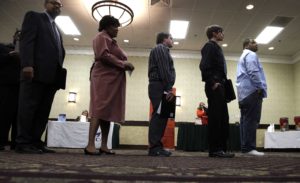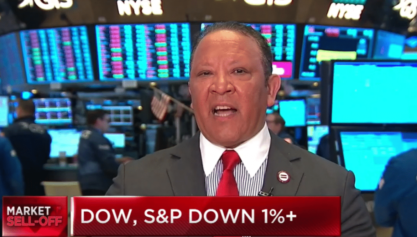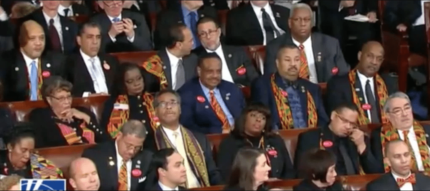
The overall unemployment rate stood at 6.1 percent in June, so the increase was very slight.
But the rate increased much more for African-Americans in July, rising from 10.7 percent in June to 11.4 percent. The June rate was the lowest level for African Americans since September 2008. The unemployment rate for teens stayed flat, according to the Bureau of Labor Statistics, but it is still startlingly high at 20 percent.
With the addition of 209,000 jobs in July, it was the first time since 1997 that the U.S. economy has added more than 200,000 jobs for six months in a row—certainly a major victory for the Obama administration. According to the Bureau of Labor Statistics, the numbers for July were helped along by increases in professional and business services, manufacturing, retail trade and construction.
The bureau also added 15,000 more jobs to the numbers recorded for two previous months—revising May from 224,000 to 229,000 and June from 288,000 to 298,000.
Last month, the Labor Department had especially good news for Black women, whose unemployment rate was in single digits at 9 percent, their lowest level since 2008.
Last week, the Federal Reserve reported that the long-term unemployment rate has finally begun a rapid fall, which is largely why the nation’s overall unemployment rate has been relatively low since the start of 2014.
But the Fed’s numbers indicate that the number of African-Americans who meet the definition of long-term unemployed—that is, out of work for at least six months—is still more than double the rate for the overall population.
The proportion of the workforce that is long-term unemployed is now 1.98 percent, which is less than half of the record high of 4.4 percent it reached in 2010. The long-term unemployment rate for African-Americans is going down, too, currently standing at 5.1 percent. But that rate is still much higher than the 3.4 percent for whites in 2010, when everyone’s numbers were escalated during the Great Recession.
“The improvement in the labor market is reaching the long-term unemployed,” Heidi Shierholz, an economist at the Economic Policy Institute, told the New York Times. “They are benefiting from the modest but measurable improvement in the labor market.”
The improvement in the long-term rate is largely responsible for the overall unemployment rate dropping down to the current level at around 6 percent.
“In many ways the fight against unemployment during the recent recovery has been mainly one of bringing down the long-term unemployment rate,” Federal Reserve economists Tomaz Cajner and David Ratner said in a memo on the Fed website. ”By the end of 2010, short-term unemployment rates were only 1/2 percentage point above their pre-recession levels, while the long-term unemployment rate was markedly elevated. Since then, about two-thirds of the decline in the aggregate unemployment rate can be accounted for by a retracing of the long-term unemployment rate.”

